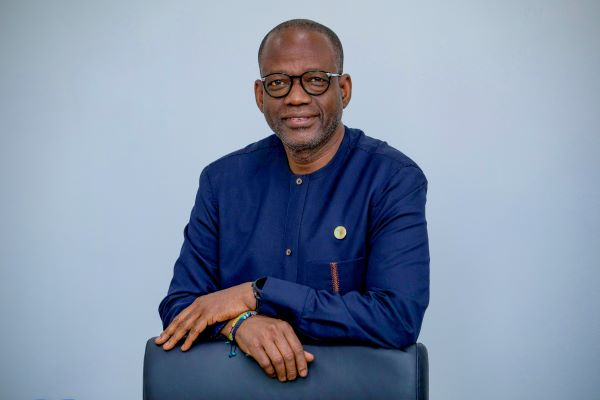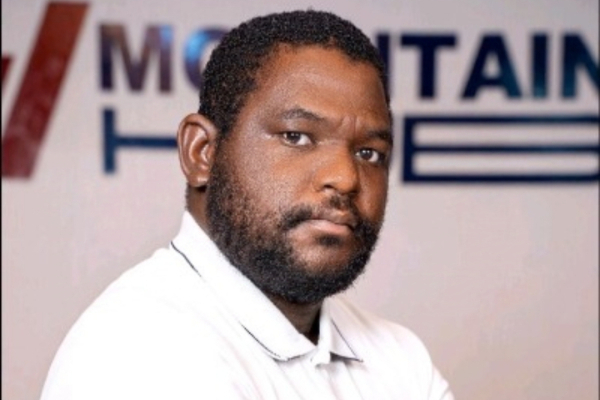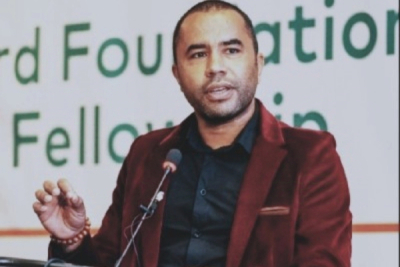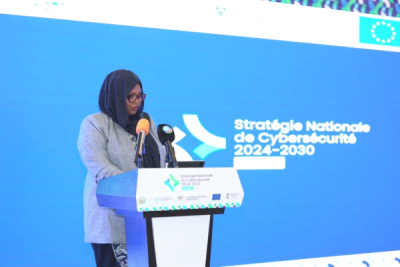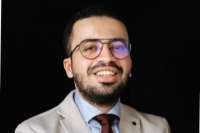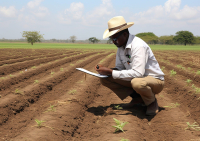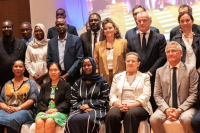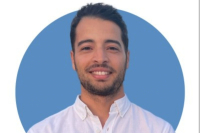Smart Africa Alliance started in 2013 with a goal to turn Africa into one big digital market by 2030. Digital technology is now a major force for development, making this mission even more important to solve many of Africa’s challenges. At the 2024 Digital Transformation Forum (ATDA) in Abidjan, Smart Africa’s CEO, Lacina Koné, talked to Ecofin Agency (EA) about the alliance’s projects and his hopes for Africa’s digital future.
WAT: What are Smart Africa’s main projects?
Lacina Koné (LK): We are currently managing 34 initiatives grouped into four key areas: connectivity, innovation, transformation, and acceleration. Each member country of the alliance selects a flagship project based on its priorities in emerging technologies. We then develop a concept note, a master plan, and a pilot project. If the pilot succeeds, it’s handed over to private partners for national or continental deployment.
One example is the One Africa Network project, with the motto “Roam like at home”. It aims to eliminate roaming charges for Africans traveling between countries, similar to what exists in Europe. Pilots began in East Africa (Rwanda, Kenya, Uganda, Tanzania, etc.) and have expanded to West Africa with recent agreements involving Côte d’Ivoire, Ghana, Togo, and Benin.
Another critical project focuses on digital identity. Digital transformation isn’t possible without reliable citizen identification, as data always belongs to someone.
WAT: What are the main challenges hindering digital growth in Africa and bridging the digital divide?
LK: The biggest challenge is the regulatory framework. It’s not just about creating rules but harmonizing them across the continent. With 1.4 billion people, Africa cannot be viewed through the lens of a single country. Policy harmonization is essential to attract investments.
Contrary to popular belief, the issue isn’t a lack of funds but the regulatory environment needed to secure them. Additionally, African states often focus on regulation without promoting innovation. Globally, the private sector drives innovation, with governments adapting to follow, except in rare cases like Estonia.
WAT: Does Smart Africa invest in skill development for young Africans?
LK: Absolutely. Transformation starts with education. We’ve observed that even decision-makers often lack understanding of digital issues. We launched the Smart Africa Digital Academy (SADA) four years ago to address this. Today, it operates independently with $20 million in funding over five years.
SADA targets several groups: policymakers, tech-savvy public officials, tech entrepreneurs, and the general public. It focuses on STEM (science, technology, engineering, and mathematics) education with a hands-on learning approach rather than rote memorization.
However, national education reforms must complement these efforts. Major global tech companies now prioritize talent over degrees. We need to prepare our youth for this shift.
WAT: Does Smart Africa advise governments on digital policies?
LK: Yes, that’s one of our core missions. We collaborate with partners like the GSMA and the United Nations Economic Commission for Africa (UNECA) on topics such as taxing emerging technologies.
Each African country faces unique financial and sovereignty challenges. It’s vital to understand that the digital economy is a key driver for development, far more than agriculture, which is often seen as central.
For instance, digital technology enables banking without banks, telemedicine without hospitals, and online education without universities. This sector is crucial for speeding up socio-economic development. We work to help policymakers realize this and shift their perspectives. While revenue pressures sometimes lead governments to tax the digital sector, we advocate for them to explore its broader potential, such as formalizing the informal economy, which accounts for up to 70% of Africa's economic activity.
WAT: What role can digital technology play in the African Continental Free Trade Area (AfCFTA), especially in cross-border payment interoperability?
LK: Africa has over 30 central banks. Countries with independent central banks often collaborate more easily on cross-border payments than those in monetary unions like WAEMU or CEMAC.
In 2023, we ran pilots between Ghana (cedi) and Togo (CFA) and between Rwanda and the Democratic Republic of Congo. These initiatives aim to lower transfer costs using mechanisms like mobile money. However, when currencies have to pass through the euro or dollar, costs rise. Interoperability requires coordinated political decisions, and innovation will be key to solving this challenge.
WAT: Can you explain the Smart Africa Trust Alliance (SATA) project?
LK: SATA aims to interconnect African countries’ digital identification systems while respecting their sovereignty. For example, someone from Benin could access services in Côte d’Ivoire, like obtaining a SIM card, without their ID’s authenticity being questioned. This project, already adopted by 15 countries, enhances transparency and trust between states, facilitating the free movement of people and services.
WAT: Does the digital sector have a bright future in Africa?
LK: Without a doubt. I would even say Africa’s future depends on digital technology. Unlike physical resources, information grows when shared. Digital technology allows an entrepreneur in Côte d’Ivoire to target 1.4 billion African consumers with similar habits, whereas sectors like agriculture remain limited to local markets. Africa’s immense potential lies in its digital transformation.
Interview by Moutiou Adjibi Nourou
He is an inspiring leader driven by a determination to promote technological innovation and foster entrepreneurial growth. As an entrepreneur and builder of startup ecosystems, he is deeply committed to leveraging technology as a catalyst for sustainable development in Africa.
Ayuk Etta (photo) is a Cameroonian serial entrepreneur recognized for his expertise in technology and sustainable development. He is the co-founder and CEO of Mountain Hub, an innovation and technology center.
Mountain Hub supports underfunded entrepreneurs in Francophone Sub-Saharan Africa by offering business creation, incubation, and acceleration services. Its mission is to help startups succeed through a wide range of programs and events designed to support their launch, growth, and expansion.
By partnering with entrepreneurs, Mountain Hub acts as a co-founder, transforming innovative ideas, technologies, and business models into high-growth companies. The center also provides assistance in key areas such as fundraising, accounting, legal affairs, and human resources.
Ayuk Etta also serves as the president of Mountain Angel Network, an investment company focused on supporting technology projects. He leads Iknite, a startup studio, and is the founder of the Cameroon International Tech Summit (CITSCM). This annual summit aims to transform Cameroon’s tech and innovation ecosystem by bringing together innovators, entrepreneurs, companies, universities, governments, development organizations, and embassies.
In 2015, Ayuk Etta founded Skylabase, a software development startup specializing in the microfinance and healthcare sectors, where he served as CEO until 2019.
The Cameroonian entrepreneur holds a bachelor’s degree in computer software engineering from the University of Buea, earned in 2014. His career began in 2010 at Diligent Bilingual Foundation, where he spearheaded the establishment of computer labs. In 2013, he became a software engineer at ActivSpaces, a Cameroonian tech innovation hub. Later, in 2017, he joined Kuelap, a fintech company, first as a partner and then as Managing Director for Africa in 2019.
By Melchior Koba,
Editing by Sèna D. B. de Sodji
The concept for the startup was conceived during the lockdown period. Three tech entrepreneurs, who were childhood friends, subsequently transformed this idea into a fully operational company.
Jobop is a digital solution developed by a Moroccan startup that enables companies to recruit temporary workers via its web platform. Based in Casablanca, the startup was founded in 2021 by Salim El Merrassi, Adil Zghaoui, and Mehdi Berrahou. In April 2022, it raised 10 million dirhams (approximately $1 million) to fuel its growth across the continent.
The platform operates exclusively through a web browser, with no mobile app currently available. Job seekers can register on the platform and complete their CVs in just three simple steps. "They are then contacted for an individual interview. Once the interview is validated, our platform suggests the most suitable temporary assignments for their profiles," explains co-founder Adil Zghaoui.
According to data published on the platform, Jobop is 30% cheaper than traditional temp agencies and can identify suitable candidates within an average of three hours. The startup gained traction in the post-COVID-19 period as more companies turned to temporary staffing for greater flexibility and responsiveness to market shifts.
"The challenge with temporary work is the lack of training for workers. Ultimately, we aim to establish sector-specific training schools to help workers secure permanent roles within companies and transition out of precarious employment," says Zghaoui.
Jobop also has ambitious plans for expansion across the continent. Beyond North Africa, it is eyeing cities such as Johannesburg in South Africa, Lagos in Nigeria, and Nairobi in Kenya as key targets for growth.
By Adoni Conrad Quenum,
Editing by Sèna D. B. de Sodji
He has nearly 20 years of experience in IT project management and software solution sales in France. As an entrepreneur, he develops innovative solutions in the e-commerce and education sectors.
Emeric Koda (photo), a Franco-Togolese tech entrepreneur, is the co-founder and CEO of Esseyi, an edtech startup headquartered in Cotonou, Benin. The name Esseyi, which means “knowledge,” “intelligence,” or “wisdom” in Ikposso a language spoken in Togo reflects the company’s core mission: advancing education and professional growth in Africa.
Founded in 2023 by Koda alongside Max Agueh and Léo Benoist, Esseyi has introduced a digital platform that allows students to search for and enroll in educational programs tailored to their needs. Upon completing their studies, users can apply directly for job opportunities through the platform. For higher education institutions, Esseyi provides strategic tools to enhance their visibility across Africa, expand recruitment opportunities, and build their reputation on both local and international stages.
At the heart of Esseyi’s mission is a commitment to elevating knowledge as a cornerstone of progress. As the company’s website notes, “We must place knowledge at the center of our priorities, as it has become a vital factor for transforming the African continent in the decades to come.”
Beyond Esseyi, Koda leads Bakatu Agency, an e-commerce company he founded in France in 2023. The agency supports small and medium-sized enterprises (SMEs), startups, and microbusinesses in creating and managing their online stores.
As a board member of SINGA Nantes, a French organization fostering initiatives by immigrants, Koda also actively promotes diversity in entrepreneurship.
Koda has a master’s degree in electrical engineering from Polytech Nantes (2003) and an MBA from IAE France (2004), a network of university business schools.
He launched his career in 2004 as a business consultant at automotive supplier Valeo. Two years later, he joined ECP Digital Services, specializing in project management information systems, where he worked as a project manager and later as a sales engineer.
In 2014, Koda took on the role of sales manager at Eudonet CRM, a cloud-based customer relationship management solutions provider. His career trajectory continued upward in 2017 when he joined retail tech company Akeneo. There, he served as a senior account manager and later as head of sales for Southern Europe from 2019 to 2023.
By Melchior Koba,
Editing by Sèna D. B. de Sodji
The Djiboutian government is committed to using digital technology to drive the country's economic growth. To do so, they aim to secure the nation's growing digital infrastructure.
Djibouti has unveiled its National Cybersecurity Strategy for 2024-2030, a comprehensive framework aimed at bolstering its digital security and advancing its goal of becoming a reliable regional digital hub. The strategy, developed by the National Cybersecurity Authority (ANCS), was officially released on Thursday, November 28.
The document is built around five key pillars: strengthening institutions and governance frameworks, protecting critical infrastructure, intensifying efforts against cybercrime, providing cybersecurity training for citizens and experts, and fostering national and international cooperation.
The launch coincides with the inaugural edition of the Hackathon Cybersecurity – Djibouti 2024. This event seeks to harness local talent to tackle technological challenges in cybersecurity. The strategy aligns with the “Djibouti Vision 2035” national development plan, which prioritizes digital transformation and resilience against cybercrime.
According to the Global Cybersecurity Index 2024 published by the International Telecommunication Union (ITU) in September, Djibouti has shown notable commitment to cybersecurity, though significant improvements are needed. The country is ranked in Tier 4 with a score of 31.47 out of 100, underscoring the urgency of building stronger capabilities.
With the new strategy, Djibouti aims to not only improve its ranking but also create a secure and resilient digital ecosystem essential for fostering a thriving digital economy. These efforts are expected to position the country as a key cybersecurity player in East Africa, attract greater investment, and enhance its competitiveness on the regional and global stages.
By Samira Njoya,
Editing by Sèna D. B. de Sodji
The agency has launched a tailored solution to help young people seize professional opportunities.
Malagasy social organization Syndicat des Industries de Madagascar (SIM) unveiled, last week, Pôle Stage, a platform designed to connect young Malagasy graduates with internship opportunities.
"This initiative embodies SIM’s commitment to bridging the gap between education and employment," explained SIM President Tiana Rasamimanana during the launch.
Accessible via web browsers, Pôle Stage requires users to create an account to get started. They can either log in with existing credentials or register by filling out the required information and uploading a PDF version of their CV. Once their account is activated, users can browse for internships that match their field of study.
The platform offers advanced search filters, allowing users to narrow down opportunities by city, sector, or company. When an appealing offer is found, users simply click "Apply Now". They receive an email notification when a company downloads their CV from the platform's dashboard, with the subsequent steps handled directly between the candidate and the company.
To further support young professionals, SIM provides Pôle Stage training programs. Participants can upload certificates from these courses to their profiles to boost their chances of securing internships. Additionally, the platform features a blog offering practical tips and advice on topics like crafting compelling CVs and cover letters, acing job interviews, and navigating workplace dynamics.
By Adoni Conrad Quenum,
Editing by Sèna D. B. de Sodji
He's dedicated to expanding financial access in Egypt. As a tech entrepreneur, he develops innovative solutions to simplify and improve the financial lives of Egyptians.
Ahmed Mahmoud Abdeen (photo) is an Egyptian electronics engineer and tech entrepreneur. He is the founder and CEO of ElGameya, a fintech startup transforming traditional financial practices in Egypt.
Founded in 2019, ElGameya modernizes Egypt’s centuries-old Gameya savings cycles, a form of rotating savings and credit association. The startup offers a user-friendly, innovative solution aimed at enhancing financial security. Through its mobile app, users can join online savings circles, make payments digitally, and receive their funds seamlessly.
"By leveraging cutting-edge technology, we ensure secure transactions and customer satisfaction. Our mission is to empower individuals and families to take control of their finances and build a better future," the company states on LinkedIn.
Abdeen holds a bachelor’s degree in electronics and communications engineering from Cairo University and a master’s degree in business administration from the Edinburgh Business School at Heriot-Watt University in Scotland, UK.
In 2015, he joined the Life Makers Foundation, a youth-led NGO focused on volunteerism, where he served as a program manager. In 2017, he became a program coordinator at the British Council in Cairo, an international organization promoting cultural relations and educational opportunities. From 2018 to 2019, he worked as a project manager at InnoVilla, a group of companies specializing in high-quality software and VoIP (Voice over Internet Protocol) solutions.
By Melchior Koba,
Editing by Sèna D. B. de Sodji
Agriculture remains the cornerstone of Africa's economy and development. Yet, the sector faces significant challenges, including inefficient resource use, low productivity, and limited access to advanced technologies. Digitization is emerging as a transformative solution to address these issues.
Rwanda officially launched the Digital Soil Information System (RwaSIS) on Friday, November 29. The state-of-the-art platform aims to revolutionize the country's agricultural sector by offering precise soil management and crop selection recommendations.
Speaking at the launch event in Kigali, Rwanda's Minister of Agriculture and Animal Resources, Mark Cyubahiro Bagabe, emphasized that RwaSIS is a transformative tool to enhance agricultural productivity and uplift farmers' livelihoods.
The initiative, spearheaded by the Rwanda Agriculture and Animal Resources Development Board (RAB), provides farmers with detailed, location-specific insights about their soil composition, crop suitability, erosion risks, and optimal fertilizer use.
The system stems from extensive trials conducted on key crops such as potatoes, rice, maize, wheat, beans, and cassava. Historically, Rwanda has relied on generic fertilizer recommendations, which did not account for regional soil variations, resulting in suboptimal yields and inefficient resource use. RwaSIS addresses these issues by providing region-specific data and tailored guidelines for farmers.
Farmers can easily access RwaSIS using their soil's Unique Parcel Identifier. This identification allows the platform to deliver customized information about soil health, suitable crops, erosion management, and precise fertilizer application. These features aim to help farmers maximize their yields and contribute to national food security.
The launch follows the recent introduction of the "Fostering Digital Villages through Innovative Advisory and Profitable Market Services in Africa (FDiVi)" project in Rwanda by the Food and Agriculture Organization (FAO). This signifies a strategic effort to align the country's agricultural practices with cutting-edge digital innovations.
The approach aligns with Rwanda's broader Vision 2050, emphasizing technology-driven economic transformation and sustainable development. It positions the country at the forefront of agricultural innovation in Africa. By integrating advanced technology into farming practices, RwaSIS is expected to bolster economic growth and support Rwanda’s development goals.
Hikmatu Bilali
Digital transformation has become a strategic priority for African countries seeking inclusive and sustainable development. Backed by international initiatives, innovative projects are underway to expand access to technology.
The Italian government, in partnership with the United Nations Development Programme (UNDP) in Senegal and the Senegalese Ministry of Communication, Telecommunications, and Digital Economy (MCTN), launched a major initiative on Thursday, November 28, to bridge the digital divide and promote inclusive growth in Africa. This flagship project, part of the Mattei Plan for Italy–Africa, targets four countries: Senegal, Côte d’Ivoire, Ghana, and Mozambique.
"The UNDP is honored to support the Italian government in implementing strategic investments to advance digital development in Africa. This initiative highlights the crucial role of international collaboration in addressing Africa's financing gap and accelerating progress toward the SDGs through digital innovation," said Catherine Phuong, UNDP Deputy Resident Representative in Senegal.
The initiative comes as Africa faces a $1.6 trillion funding gap to meet the Sustainable Development Goals (SDGs) by 2030, according to a joint report by the Organisation for Economic Co-operation and Development (OECD) and the African Union (AU) titled Africa’s Development Dynamics 2023. By leveraging digital technologies, the project aims to energize key sectors such as health, education, agriculture, and governance, while improving public services.
For Senegal, the initiative aligns with clear national ambitions outlined in the country’s digital strategy, currently under development. Priorities include modernizing infrastructure, expanding access to digital tools, and fostering an inclusive digital ecosystem.
Once implemented, the project is expected to accelerate Senegal's digital transformation, strengthen its economic competitiveness, and support sustainable growth. By enhancing citizens' quality of life, it could also position the country as a model for digital transformation in Africa.
By Samira Njoya,
Editing by Sèna D. B. de Sodji
With over 12 years of experience in finance, consulting, and digital transformation, he offers innovative approaches to training, e-learning, recruitment, and onboarding.
Youssef Jbel (photo) is a Moroccan finance expert and entrepreneur in the technology sector. He is the co-founder and CEO of NowEdge, a tech company specializing in learning and development.
Founded in 2020, NowEdge supports organizations in their transformation efforts by enhancing the skills of their teams. The company offers an innovative SaaS platform for training, built around two core principles: gamification and realistic simulations.
“At NowEdge, we offer two main HR solutions: training gamification and digital onboarding. Our approach is to make content more interactive and engaging through storytelling and scenario design. For example, in onboarding, we create fun, digital journeys that help new employees easily grasp the company’s values and mission. These solutions can be tailored to various industries, from pharmaceutical labs to banks,” explained the CEO of the startup, which boasts 2,500 users and seven ready-to-use training games.
Youssef Jbel graduated in 2011 from the National Institute of Applied Sciences (INSA) in Toulouse, France, with a master’s degree in applied mathematics, statistics, modeling, and financial mathematics. In 2012, he earned a second master’s degree in quantitative mathematics and finance from the prestigious École des Ponts et Chaussées, also in France.
That same year, he joined Mosaic Finance, a French investment firm, as a trader. Three years later, he moved to Société Générale Corporate and Investment Banking, working in the equity derivatives pricing and solutions department. In 2017, he returned to Morocco to serve as a senior structurer at Attijariwafa Bank. From 2019 to 2022, he worked as a project manager in quantitative modeling and analytics at OCP Solutions, a firm specializing in business consulting and services.
By Melchior Koba,
Editing by Sèna D. B. de Sodji
More...
Namibia’s Communications Regulatory Authority (CRAN) has issued an order for Starlink to cease operations in the country, citing the lack of a required telecommunications license, according to Reuters.
The cease-and-desist order, issued on November 26, 2024, follows an investigation confirming unauthorized network activities by Starlink.
Starlink has applied for a license in Namibia, but CRAN stated the application is still under review. Meanwhile, the regulator has advised consumers against purchasing Starlink equipment or subscribing to its services, calling such actions illegal.
Egyptian digital payment provider e-finance has partnered with UK-based Cassava Technologies to drive digital transformation across Africa.
The agreement, signed at the 28th Cairo ICT Exhibition and Conference held Nov 17- 20, aims to enhance Egypt’s digital landscape while introducing advanced solutions across the continent.
The collaboration focuses on fostering financial inclusion and supporting digital economies across Africa.
Developped by two tech entrepreneurs, the solution aims to help hospitals secure blood supplies more efficiently.
Wala Digital Health, a Ghanaian e-health startup, is streamlining how hospitals and blood banks order, receive, and manage blood supplies. Founded in 2019 by Dennis Addo and Kanyisola Oyeyinka, the company operates from Accra, Ghana, and Cambridge, USA, combining local impact with global innovation.
“We harness the power of social networks to boost blood product availability and leverage innovative digital solutions for processing, sharing, and delivery, combating the fatal consequences of blood shortages,” the platform explains.
The solution features a mobile app, available on iOS and Android, enabling blood donors to connect with the platform and schedule donations. Through extensive use of digital channels, including social media, Wala Digital Health has built a donor community of around 1,000 members. Donors earn digital tokens after each contribution, which can be redeemed for medical services.
Blood donations are processed and made available within 24 to 48 hours. “Whole blood is separated into components (red blood cells, platelets, and plasma). Red blood cells can be stored for up to 42 days, plasma can be frozen and kept for 12 months, while platelets must be used within five days,” the platform notes.
Hospitals and blood banks can easily access these products through the app to meet their supply needs. In recognition of its innovative approach, Wala Digital Health was among 36 start-ups selected for the regional rounds of the MEST Africa Challenge in 2022.
By Adoni Conrad Quenum,
Editing by Sèna D. B. de Sodji
He is a committed leader driven by a strong desire to promote economic growth and community development. He has founded several businesses, particularly in the trade and agriculture sectors.
Festus Malakia (photo), a Namibian entrepreneur, is the co-founder and CEO of Mepya, a startup specializing in food distribution and agro-processing. The company leverages technology to support smallholder farmers, enabling them to grow their operations and access broader markets.
Founded in 2021, Mepya is a B2B tech-focused start-up in the food distribution and agro-industry sector. It connects producers directly with buyers, aiming to make nutritious food more accessible while strengthening food security.
“Our goal is to create an integrated market where farmers can connect with a larger customer base and utilize resources efficiently. Through this marketplace, we aim to reduce waste, increase farmers' income, and contribute to agricultural sector growth,” states the company’s website.
Before launching Mepya, Malakia founded Central Commerce Group in 2017, a multi-sectoral social enterprise operating in agriculture, agri-tech, e-commerce, logistics, and more. In 2018, he co-founded the Unique Empowerment & Employment Initiative Foundation (UEEIF), an organization focused on youth development, where he also serves as CEO.
An active member of the Global Shapers Community, Malakia has worked as a business consultant since 2012, collaborating with over 5,000 young professionals and entrepreneurs on projects across Africa, the Middle East, Europe, and North America.
Malakia graduated from NUST Namibia in 2014 with a bachelor’s degree in Human Resource Development. His career began in 2011 at Namibia’s National Planning Commission as a data collector. He later worked as a banker at Nedbank Namibia in 2015 and as a data entry clerk at the Ministry of Health and Social Services in 2017.
By Melchior Koba,
Editing by Sèna D. B. de Sodji


